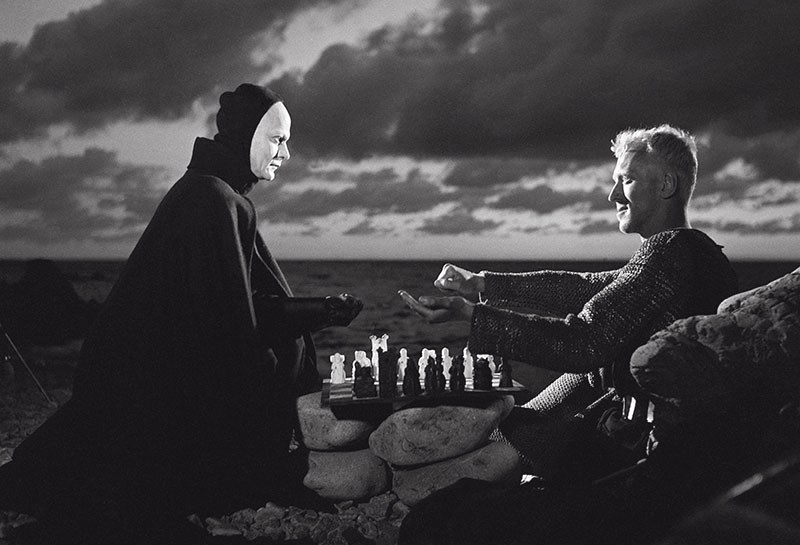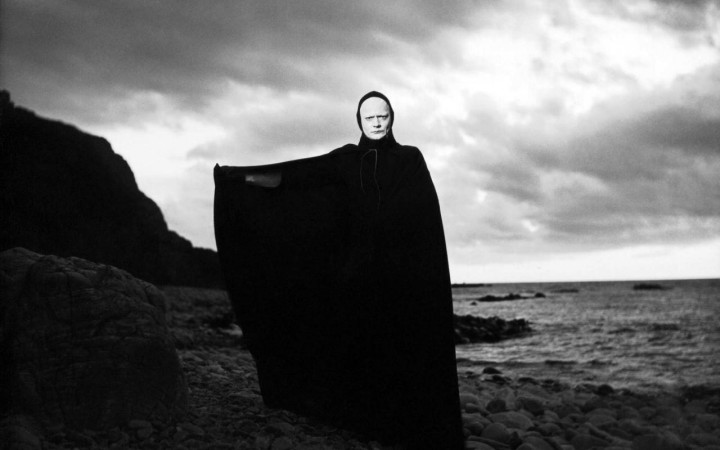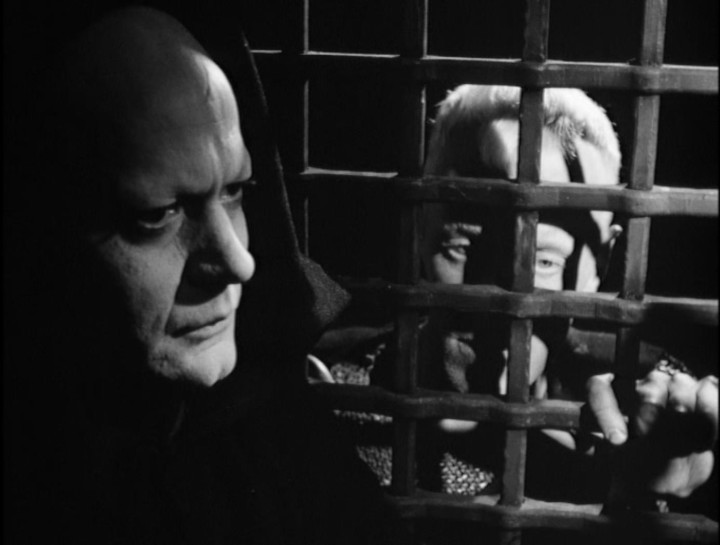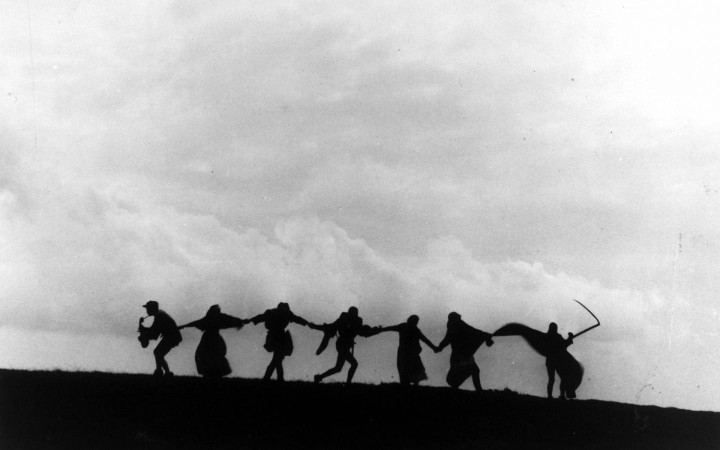There is probably nothing in this film that has not been examined—from its opening with the bird suspended motionless in the sky by air currents as a symbol of the knight hovering between life and death (as well as representing the “silence in heaven” after the opening of the Seventh Seal in the Book of Revelation) to the final fade-out. I think this is less a case of a film being over-analyzed than it’s the simple fact that the film suggests a wealth of mysteries hidden away in it. In a sense, Bergman turns all of us into von Sydow’s Antonius Block. Like him, we never stop asking questions about the meaning of it all—at least in the film. And the film is perhaps like Death himself, who claims to have no secrets and to be “unknowing.”
The film’s influence is certainly without question. It had more than a little bearing on the Roger Corman’s horror film Masque of the Red Death(1964)—even to a pretty direct, let’s say borrowing of Death being “unknowing.” (And wasn’t The Seventh Seal always something of a horror picture?) Some of its imagery clearly informs Ken Russell’s The Devils (1971), and although Russell and Bergman have different things on their minds with the two films, I can’t but wonder if Russell’s idea to play the citizens of 1634 Loudun as people who think of themselves as modern has its roots in the squire Jons (Gunnar Bjornstrand) referring to the peasants here as “modern people.” Of course, it—and Bergman in general—is at the heart of Woody Allen’s Love and Death (1975). And evocations of Bengt Ekerot’s Death are everywhere from the 1968 parody short De Duva to Last Action Hero (1993). It’s rare that an art film becomes so completely absorbed into pop culture.
What struck me watching the film the last time was how the film plays as a kind of fragmented portrait of Bergman himself. In fact, it reminded me of Josef von Sternberg’s answer to John Baxter’s question about which character in a film represented him—“All of my characters represent me.” When pressed on the matter Sternberg claimed they all represented him “spiritually.” Well, in The Seventh Seal we have glimmers of many faces of Bergman. In some ways, he’s the eternally questioning knight, but he’s also the slightly goofy strolling player (Nils Poppe), who is also an artist who has visions. At the same time, he can be seen as the cynical squire who finds everyone and everything a little ludicrous and comical—and empty and pointless. And, of course, Bergman as writer and director is Death as well, since the fates of his characters are in his hands. And beyond that? Who can say, but I’m betting there’s a little Bergman in more than a few others. Try it and see.
Classic World Cinema by Courtyard Gallery will present The Seventh Seal Friday, Aug. 21 at 8 p.m. at Phil Mechanic Studios, 109 Roberts St., River Arts District (upstairs in the Railroad Library). Info: 273-3332, www.ashevillecourtyard.com







Before you comment
The comments section is here to provide a platform for civil dialogue on the issues we face together as a local community. Xpress is committed to offering this platform for all voices, but when the tone of the discussion gets nasty or strays off topic, we believe many people choose not to participate. Xpress editors are determined to moderate comments to ensure a constructive interchange is maintained. All comments judged not to be in keeping with the spirit of civil discourse will be removed and repeat violators will be banned. See here for our terms of service. Thank you for being part of this effort to promote respectful discussion.